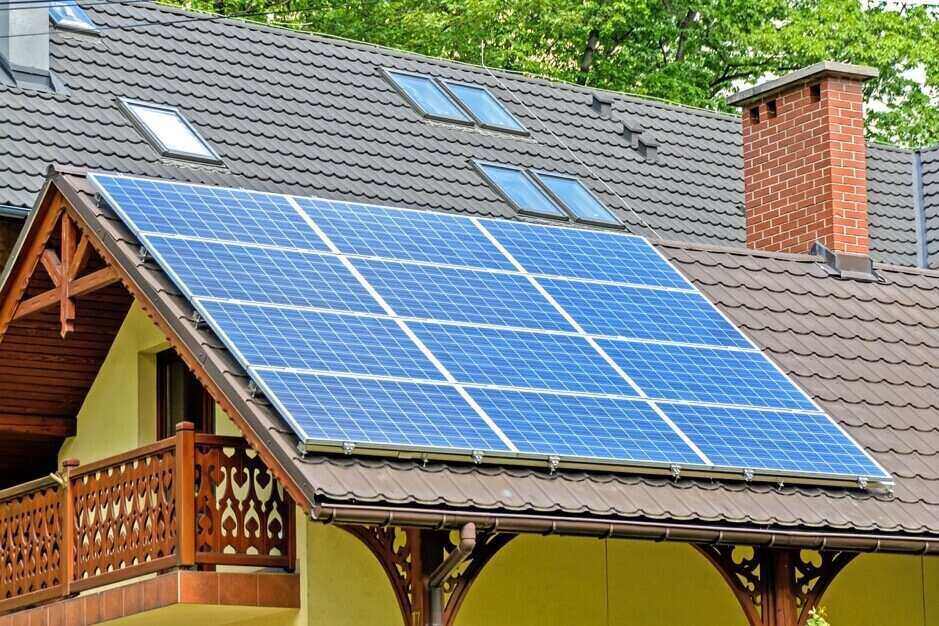
How to Prepare for a Successful Move to Denver: a Step-by-Step Guide
Moving to a new city can be both exciting and overwhelming. Denver, known for its vibrant culture, stunning natural beauty, and thriving job market, is

Selling a house with a fully owned solar system is a straightforward process as the solar panels are treated like any other home features and are incorporated into the home value. However, if the solar panels are financed, it can complicate selling the house.
Solar financing can be through a solar loan, PACE program, or solar lease. Below is a look at how the different types of financing work and how they affect the transfer of ownership.
With a solar loan, you make a monthly payment for them. Upon completion of the loan payment, you own the panels fully, and the lender has no claim on them.
When selling the house, you can easily transfer ownership of the solar panel if you have finished paying the loan.
However, if you have not, you may transfer the loan to the new homeowner for them to continue making payments. The only challenge is some buyers may not be willing to take up the solar loan.
Likewise, some mortgage lenders may not be willing to finance a house with an ongoing solar loan.
Home buyers will also require a higher debt-to-income ratio to qualify for financing for a house with financed solar panels. The scenarios decrease your pool of potential buyers. If you’re thinking, “I want to sell my house fast,” then you should also consider cash buyers.

The Property Assessed Clean Energy (PACE) program is available in select states in the US, including Florida, Missouri, and California.
It enables you to roll your installation cost for the solar system into your property tax. Therefore, if you qualify, the local government in your area pays for the installation cost of the panels in your residence.
Consequently, you pay a higher property tax. The value of the panels is factored in the home value during appraisal or assessment. As such, it is easy to sell the house since the panel’s value is attached to the value of the house.
You acquire the panels through a power purchase agreement in a solar lease. Like in the case of a loan, you make monthly payments towards the lease. However, you never own the panels, even after the expiry of the lease. The leased panels also do not increase your home value.
The lease is for a specified time—usually 20-25 years. In most cases, the agreement ties you down, making it difficult to sell a house with leased solar panels.
Some companies have a clause prohibiting you from transferring or terminating the lease before the agreed period. You would be required to pay off the balance owed on the lease to terminate it. Or, you may be charged a fee to be able to transfer the lease.
To sell a house with leased solar panels, you must involve the solar company before listing the house. If you bought the house with the lease in place, it could be difficult to track down the previous owner or the original lease agreement to transfer it.
Even if you are the first leaser, the lease company may be unresponsive to your request to end or transfer the lease, prolonging the sale process of the house.
If the solar company agrees to your negotiation, you have two options. You can either buy out the lease or transfer it to the new homeowner.
Buying out the lease requires that you have a lumpsum amount of money to make an upfront payment. You may also be charged a lease termination fee. This option is quite costly and adds to your overall selling and closing costs for the real estate transaction.
Even if the company agrees to transfer the lease, finding a potential buyer willing to take up the lease agreement and continue making the FIT payments can be difficult.
Review your lease agreement and consult with your energy company about the terms of transfer so that you can explain them clearly to interested buyers. Nevertheless, the transfer process can be complicated, delaying the sale process.
As mentioned above, you can either choose to pay off your lease or loan and then sell the house normally or seek to transfer the loan or lease to the new home buyer.
In the case of a transfer, you need to disclose in the listing that the house has financed solar panels and you are looking for a buyer who is open to taking up the lease or loan. Being forthcoming with the issue of the financed solar panels enables you to attract a home buyer who could be interested in the house as is.
If you are unsure how to present the listing, consult with your real estate agent. Emphasize the benefits of the panels in your listing to persuade potential buyers to take up the lease or loan. Involve your lender or energy company as early on in the sale process as possible.
The option to transfer the lease or loan is most suitable if the solar panels are in good condition and optimize energy efficiency. However, if they are faulty, terminate the lease. Or, if you have a lesser loan balance, it would be best to pay off the loan instead of transferring it to a potential buyer.
The new buyer or their lender may require an inspection of the roof and solar panel to determine if they are in good condition. They will also assess the efficiency of the solar panel and its energy efficiency.
Provide them with all the relevant details regarding the lease or loan agreement, including the lease/loan period, monthly repayment amounts and schedule, and a breakdown of your energy bill in the past few months.
This sets their expectations and helps them to make an informed decision in taking up the loan or lease. You may need to involve an attorney in the loan or lease transfer and the closing process to ensure everything is done correctly.
According to the National Association of Realtors, homes with fully owned solar panels sell faster and at higher rates, up to 4%, than comparable homes without solar panels.
Therefore, in the case of solar loans, it may be a good idea to pay off the loan and then list the house for sale. That way, the solar panels increase your home value, and you attract a wider pool of potential buyers.
In the case of a lease agreement, terminate the lease and pay any penalties. The company would then remove the solar panels, and you can proceed to sell the house as usual.
Solar panels can be a great investment in your property. If fully owned, they increase the value of the property. They also enhance energy efficiency, attracting potential buyers wanting to save on their energy bills. However, if they are financed, they can make it difficult to sell your house.
Whether a solar lease or loan, it can be difficult to find a potential buyer or mortgage lender willing to take up the lease or loan agreement. Therefore, it would be best to pay off the loan or terminate the lease agreement and then proceed to sell the house.
If you pay off the loan, you own the panels, and their value increases the overall home value. On the other hand, if you terminate the lease, the energy company will uninstall the solar system and any supportive hardware they have installed. You can then sell the house as you would a similar home without a solar system.

Moving to a new city can be both exciting and overwhelming. Denver, known for its vibrant culture, stunning natural beauty, and thriving job market, is
Value add in real estate means finding ways to make a property more valuable. This can include things like renovating, improving operations, or changing how
Colorado Springs is a great location for rental property owners, but even in high-demand rental markets, selling your rental property sometimes makes financial sense. The
We’re a service-focused, home buyer that specializes in helping homeowners get rid of burdensome houses quickly. We are Colorado cash buyers who can buy your house fast with a fair all-cash offer. Imagine an instant online quote to sell as-is, without realtors and on your timeline! As a house buyer that’s what we offer. Therefore, if you need to sell your house fast and need a trusted professional home buying company look no further because we buy houses fast for cash.
We Buy Houses In Denver, 1337 Delaware St, Denver, CO 80204